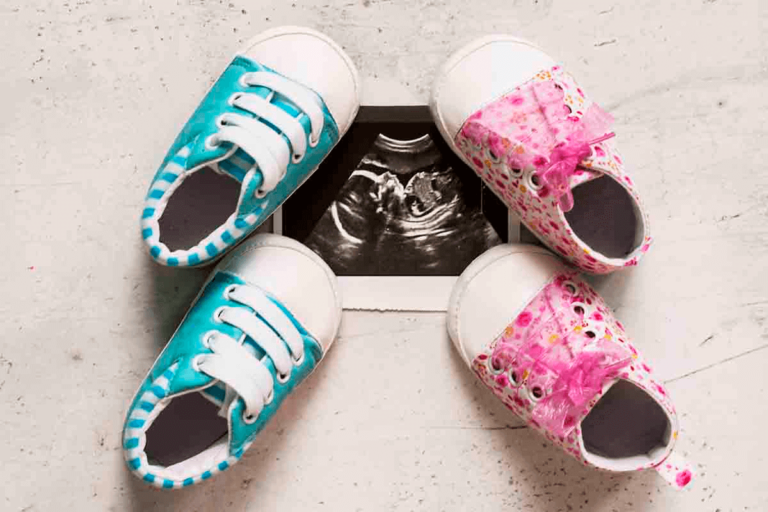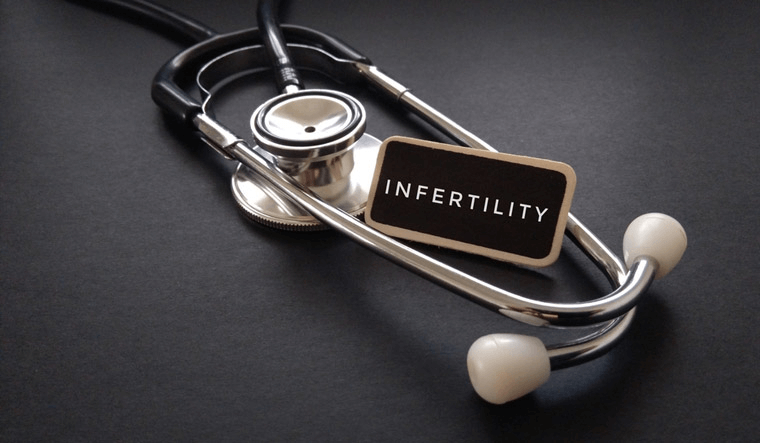Your Guide to Healthy Pregnancy Weight Management

Starting your pregnancy journey means managing your weight gain is key. The National Center for Chronic Disease Prevention and Health Promotion says a healthy weight gain supports your baby’s health. To do this, eat well and exercise regularly, which are vital for managing pregnancy weight.
Healthy pregnancy tips include aiming for 11.5 to 16 kg weight gain if your BMI is 18.5 to 24.9. Women with a BMI under 18.5 should gain 12.5 to 18 kg, and those with a BMI over 30 should gain 5 to 9 kg. By following these guidelines and adding healthy habits to your day, you can have a healthy pregnancy and lower the risk of complications.
By focusing on your health, you can have a healthy pregnancy and give your baby a great start. The right approach to managing pregnancy weight can reduce health risks and ensure a smooth pregnancy. This guide offers tips for staying healthy and managing weight gain during pregnancy, helping you to have a healthy and happy pregnancy.
Key Takeaways
- Healthy lifestyle habits, such as a balanced diet and regular exercise, can help manage pregnancy weight gain and support the baby’s health.
- Pregnancy weight management is critical for reducing the risk of complications during pregnancy.
- Following tips for staying healthy, such as aiming for a weight gain of 11.5 to 16 kg during pregnancy, can help you stay on track.
- Healthy pregnancy tips, including regular exercise and a balanced diet, are essential for a healthy pregnancy.
- Pregnancy weight management might also depend on factors such as an individual’s ethnic background.
- Tracking your weight at each antenatal appointment can help you monitor your progress and make adjustments as needed.
Understanding Pregnancy Weight Gain: What to Expect
As you start your pregnancy journey, knowing the normal weight gain ranges is key. The National Center for Chronic Disease Prevention and Health Promotion says weight gain should match your pre-pregnancy Body Mass Index (BMI). A prenatal nutrition guide can guide you in making healthy diet and lifestyle choices.
Your body changes a lot during pregnancy, and weight gain is part of that. It’s important to stay active during pregnancy. The American College of Obstetricians and Gynecologists (ACOG) has guidelines for healthy weight gain. These guidelines depend on your pre-pregnancy BMI.
Normal Weight Gain Ranges by Trimester
The recommended weight gain for each trimester is as follows:
- First trimester: 2-4 pounds
- Second trimester: 12-14 pounds
- Third trimester: 8-10 pounds
Remember, these are general guidelines. Your healthcare provider might suggest a different range based on your needs.
Factors Affecting Pregnancy Weight Gain
Many things can influence your weight gain during pregnancy. These include your pre-pregnancy BMI, age, and health. A prenatal nutrition guide can help you make smart choices about your diet and lifestyle. This ensures you get the nutrients you need for a healthy pregnancy. By understanding weight gain ranges and factors, you can stay fit during pregnancy and lower the risk of complications.
The Importance of Proper Weight Management During Pregnancy
As you go through your pregnancy, keeping a healthy weight is key. Maternal health during pregnancy is vital, and MedStar Health Women’s Health says too much weight gain or loss can lead to problems. The Mayo Clinic stresses the need for healthy eating habits for pregnant women to ensure a healthy pregnancy.
Eating right and staying active can help you manage your weight. The amount of weight you should gain depends on your pre-pregnancy BMI. For example, if you’re at a healthy weight, you should gain 25-35 pounds. If you’re underweight, aim for 28-40 pounds.
To gain weight healthily, focus on healthy eating habits for pregnant women. Eat lots of fruits, veggies, whole grains, and lean proteins. Try to eat 1,800 calories a day in the first trimester, 2,200 in the second, and 2,400 in the third. Also, stay active with walking or swimming to keep healthy.
By focusing on maternal health during pregnancy and keeping a healthy weight, you can lower the risk of pregnancy complications. Always talk to your healthcare provider about the best weight management plan for you.
Essential Nutrients for a Healthy Pregnancy
As you journey through pregnancy, it’s key to follow a prenatal nutrition guide. This guide supports your health and your baby’s growth. Eating well is important for a good pregnancy outcome.
A balanced diet gives your baby the nutrients they need. These include folic acid, iron, and calcium. These are vital for your baby’s development.
A prenatal guide suggests 600 to 1,000 micrograms of folic acid daily. You can get it from fortified cereals, spinach, and oranges. Calcium is also important for your baby’s bones. You can find it in fortified orange juice, mozzarella cheese, and dairy products.
Key Vitamins and Minerals
Vitamin D and iron are also key. Vitamin D helps with bone health. You can find it in cooked sockeye salmon and fatty fish. Iron supports your baby’s brain and is in iron-fortified oats and lean red meat.
Protein Requirements
Protein is vital for your baby’s growth. Aim for 71 grams of protein daily. You can get it from low-fat cottage cheese, lean meats, and dairy products.
Following a prenatal nutrition guide and eating healthily is key. It ensures you get all the nutrients for a healthy pregnancy. Stay hydrated, avoid alcohol, and talk to your healthcare provider for advice.
Managing Pregnancy Weight Gain: Tips for Staying Healthy
As you go through your pregnancy, it’s key to stay healthy for you and your baby. The National Center for Chronic Disease Prevention and Health Promotion says healthy habits are important. This includes regular exercise and a balanced diet. Also, drinking water, sleeping well, and managing stress are vital for a healthy pregnancy.
To keep a healthy weight, consider these tips:
- Drink 8 to 12 cups (64 to 96 ounces) of water daily, as recommended by the American College of Obstetricians and Gynecologists (ACOG)
- Aim for 10,000 steps per day to maintain an active lifestyle during pregnancy
- Walk for at least 10 minutes per day, gradually increasing to 30 minutes by the end of the first trimester
A balanced diet is also key for a healthy pregnancy. Pregnant women need about 340 extra calories a day in the second trimester. In the third trimester, they need about 450 extra calories daily. By following these tips for staying healthy and focusing on pregnancy weight management, you can lower the risk of complications and have a healthy pregnancy.
Remember, every pregnancy is different. It’s important to talk to your healthcare provider to find what’s best for you. By putting your health first, you can have a positive and healthy pregnancy experience.
Creating Your Pregnancy Meal Plan
As a pregnant woman, it’s key to follow a prenatal nutrition guide. This guide helps you eat healthily for a healthy pregnancy. The National Center for Chronic Disease Prevention and Health Promotion says a balanced diet is best for your baby’s health.
A good meal plan should have foods from all groups. You should eat 6-11 servings of grains, 2-4 servings of fruit, and 4 or more servings of vegetables. Also, aim for 4 servings of dairy and 3 servings of protein daily. Don’t have more than 300 mg of caffeine a day and avoid foods like king mackerel and swordfish.
- Include a source of protein at every meal, such as lean meats, fish, and eggs
- Choose whole grains, such as brown rice, quinoa, and whole-wheat bread
- Eat a variety of colorful fruits and vegetables, such as berries, leafy greens, and bell peppers
- Limit your intake of sugary drinks and foods high in added sugars
By following a prenatal nutrition guide and eating healthily, you can have a healthy pregnancy and baby. Always talk to your healthcare provider before changing your diet.
Safe Exercise During Pregnancy
Staying fit during pregnancy is key for a healthy journey. Exercise can lower risks of problems like gestational diabetes and preeclampsia. These issues affect 2% to 10% and 5% to 8% of pregnancies, respectively. Exercise also helps manage stress and improves sleep, common pregnancy concerns.
Healthy pregnant women need at least 2½ hours of moderate-intensity aerobic activity weekly. Safe options include brisk walking, swimming, and low-impact aerobics. But, high-impact activities like running are not advised for most. It’s vital to walk at least 30 minutes daily, and any activity is good.

- Avoid strenuous exercise in hot weather due to dehydration risks
- Avoid exercises that may carry a risk of falling, such as horse riding or gymnastics
- Avoid lying flat on the back for long periods after 16 weeks
- Avoid participation in contact sports or scuba diving
Pelvic floor exercises are also important, with a goal of 3 sets of 8 squeezes daily. Being active can ease backache and improve circulation. This makes it vital for a healthy pregnancy and postpartum weight loss.
Common Challenges in Pregnancy Weight Management
As you go through your pregnancy, you might face some hurdles in managing your weight. Morning sickness, cravings, and water retention are common problems. The National Center for Chronic Disease Prevention and Health Promotion says these can be tackled with the right strategies and healthy pregnancy tips.
Some of the common challenges include:
- Morning sickness: This can lead to weight loss or gain, depending on the severity and frequency of episodes.
- Cravings: Unhealthy cravings can hinder your efforts to maintain a balanced diet and manage your weight.
- Water retention: This can cause weight fluctuations and discomfort, making it essential to monitor your fluid intake and sodium consumption.
To beat these challenges, it’s key to follow healthy pregnancy tips. This means eating well, drinking plenty of water, and staying active. By putting your health first, you can handle your weight better and lower the risk of pregnancy problems. Always talk to your healthcare provider for advice on pregnancy weight management and healthy pregnancy tips.
Knowing about these common issues and taking steps to manage them can help you have a healthier pregnancy. It can also make your experience more positive.
Tracking Your Progress: Tools and Methods
Tracking your progress during pregnancy is key for a healthy journey. The National Center for Chronic Disease Prevention and Health Promotion says monitoring weight gain and health is important. The Mayo Clinic suggests using pregnancy weight trackers for weight management.
Understanding the importance of tracking your progress is vital for pregnancy weight management. It helps you make smart choices about diet and exercise. This ensures you’re following healthy pregnancy tips for balanced weight gain. The American College of Obstetricians and Gynecologists (ACOG) gives guidelines for weight gain based on your pre-pregnancy BMI.
Using Pregnancy Weight Trackers
Pregnancy weight trackers are great for monitoring weight gain. They offer features like weight tracking, nutrition advice, and exercise plans. Using a tracker helps you stay accountable and make lifestyle changes for a healthy pregnancy.
When to Contact Your Healthcare Provider
Keeping in touch with your healthcare provider is important during pregnancy. If you’re worried about weight gain or health, reach out. Your provider can guide you and support you, ensuring you follow healthy pregnancy tips for a successful pregnancy.
Tracking your progress and following healthy pregnancy tips can reduce the risk of complications. Stay informed and don’t hesitate to contact your healthcare provider about pregnancy weight management concerns.
Special Considerations for High-Risk Pregnancies
Understanding maternal health during pregnancy is key, more so for high-risk pregnancies. MedStar Health Women’s Health stresses the need for close monitoring and specialized care. The Mayo Clinic highlights the role of healthy eating habits for pregnant women in managing these risks.
A balanced diet full of essential nutrients can help manage risks. Important points for high-risk pregnancies include:
- Close monitoring of fetal development and maternal health
- Specialized care from a healthcare provider experienced in high-risk pregnancies
- A healthy and balanced diet that supports fetal growth and development
Be aware of possible complications like gestational diabetes, pre-eclampsia, and preterm labor. Working with your healthcare provider and eating healthily can lower these risks. This ensures the best outcome for you and your baby.
Every pregnancy is different, and focusing on maternal health during pregnancy is vital. By staying informed and teaming up with your healthcare provider, you can tackle high-risk pregnancy challenges. This way, you give your baby the best start in life.
Maintaining Healthy Habits Throughout Your Pregnancy
As you go through pregnancy, keeping healthy is key. The National Center for Chronic Disease Prevention and Health Promotion says healthy habits lower risks. The Mayo Clinic shares tips for each trimester, like eating right, exercising, and resting well.
In the first trimester, eat foods rich in nutrients like protein, iron, folic acid, and calcium. By the second trimester, you’ll need about 340 more calories a day. In the third, it’s around 450 more calories. Taking a prenatal supplement with 400 to 800 mcg of folic acid can prevent birth defects.
- Eat a balanced diet with plenty of fruits, vegetables, and whole grains
- Stay hydrated by drinking at least eight to ten glasses of water daily
- Limit your intake of caffeine and added sugars
- Aim for at least eight hours of sleep each night
Following these tips can help you have a healthy pregnancy. Always talk to your healthcare provider for advice tailored to you.
Preparing for Postpartum Weight Management
As your pregnancy comes to an end, start thinking about postpartum weight loss tips. The National Center for Chronic Disease Prevention and Health Promotion says getting ready for postpartum weight management is key. It helps avoid extra weight after birth. It’s important to focus on maternal health during pregnancy to gain a healthy amount of weight and avoid problems.
Eating well and exercising regularly are key for postpartum weight loss. The CDC suggests women with a healthy weight gain 25 to 35 pounds when expecting one baby. But, about half of pregnant women gain more, leading to extra weight after birth. Cutting calories by 500 a day can help lose 1.1 pounds a week safely.
- Increasing fiber intake by 4 grams to support weight loss
- Breastfeeding to boost metabolism and suppress appetite
- Keeping healthy foods, such as fruits, visible and easily accessible
- Avoiding high intake of added sugar and refined carbohydrates
By following these tips and focusing on maternal health during pregnancy, you can prepare for a healthy postpartum weight journey. Always talk to your healthcare provider before starting any new diet or exercise.
Conclusion: Your Path to a Healthy Pregnancy
Starting your pregnancy journey means focusing on a healthy weight for you and your baby. Follow the advice in this article to feel confident. Eat well, stay active, and watch your weight closely. With hard work and your doctor’s help, you’re on the path to a healthy pregnancy.
Every pregnancy is different, so be flexible and find what works for you. Taking care of yourself and your baby is the first step to a wonderful experience. Enjoy the changes, celebrate the milestones, and look forward to the amazing journey ahead.






